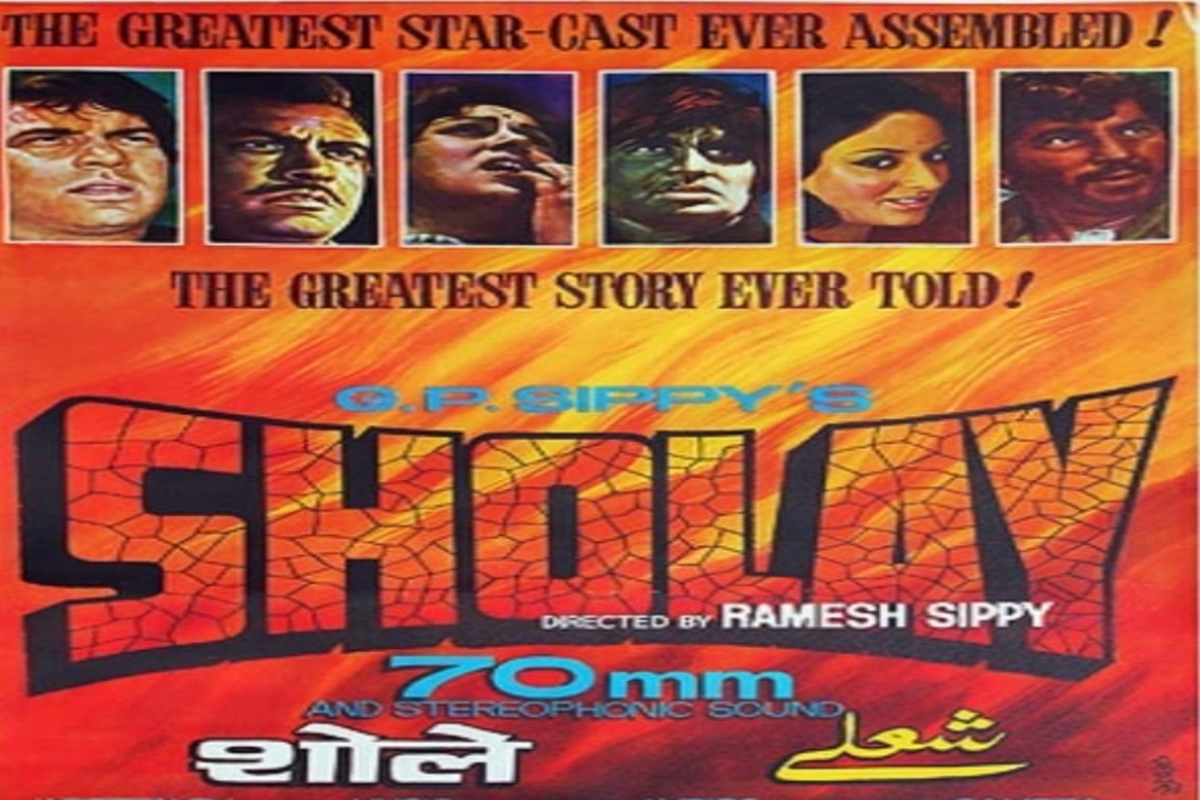Delhi HC refuses urgent hearing on PIL by retired judge against cash-based schemes by political parties
The Delhi High Court on Monday declined to grant an urgent hearing on a Public Interest Litigation (PIL) filed by a retired judge.
Among the submissions, the defendants contended that “Sholay.com” is a website on the internet that is used by educated persons, which would consequently lead to a lesser likelihood of confusion.

Sholay.(photo:IMDB)
The Delhi High Court has slapped a Rs 25 lakh fine on a website for infringing the trademark of the iconic Hindi film “Sholay”, after restraining it from using the logo, designs, and selling the DVD of the film on the internet.
A bench of Justice Prathiba M.Singh was dealing with a suit filed by Sholay Media Entertainment against a domain name and magazine using the name and scenes of the film “Sholay” and the sale of related things associated with the film.
Advertisement
“The adoption of the mark ‘SHOLAY’ by the defendants was clearly mala fide and dishonest, owing to the use of the infringing logo, designs, selling of the DVD of the film ‘Sholay’ on the defendants’ website, etc. For the reasons contained above, this Court is convinced that this is a fit case for award of costs to the Plaintiffs. Accordingly, the present suit is decreed for a sum of Rs 25,00,000 as costs and damages, in terms of the relief of the Plaint,” read the recent order.
Advertisement
Among the submissions, the defendants contended that “Sholay.com” is a website on the internet that is used by educated persons, which would consequently lead to a lesser likelihood of confusion.
Responding to this, the court said: “Insofar as internet usage is concerned, the said platform is now being accessed by billions of users across the world who may range from very educated to even illiterate people. In this day and age, the internet as a medium has become a platform for dissemination, communication, and empowerment of the common man. Thus, in the opinion of this court, the contention that the internet is only being used by educated persons is unacceptable. It would be easy for any person, not just educated individuals, to establish a connection between the plaintiffs’ film and the defendants’ website.”
Further, the order said that the content in a movie is no longer merely restricted to theatrical screening, but also to online platforms and other electronic platforms.
“Thus, the internet has itself created an additional market for ‘Sholay’, which is a film nearly 50 years old. The adoption by the defendants is with complete knowledge of the plaintiffs’ film, especially considering that the defendants’ companies are being run by Indians, who are more than likely to be aware of the film ‘Sholay’. The goods and services being offered can be considered as being offshoots emanating from the plaintiffs.”
Advertisement